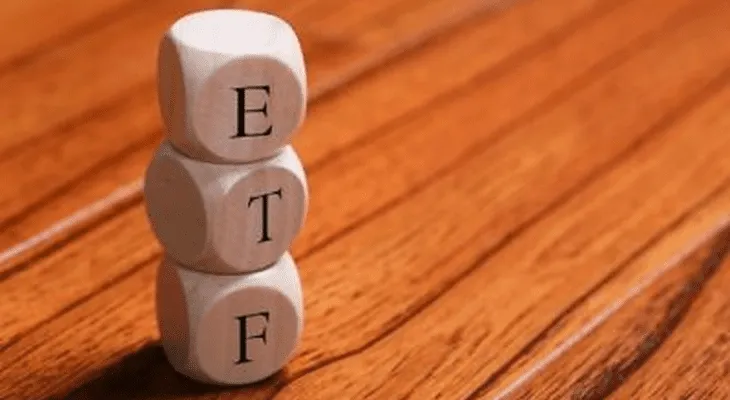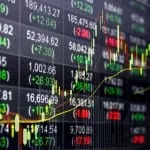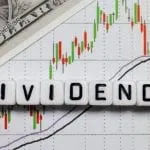Dividend-Paying Airline Fund Ready to Climb Skyward
By: Paul Dykewicz,

Dividend-paying airline fund U.S. Global Jets ETF (NYSE:JETS) is ready to climb skyward with COVID-19 vaccines showing positive results in late-stage testing, two top investment fund leaders are forecasting.
The dividend-paying airline fund appears prepared to rise in the coming months when if the COVID-19 crisis is brought under control once a safe and effective vaccine is available for use by the public. JETS, an exchange-traded fund launched by San Antonio, Texas-based U.S. Global Investors in April 2015, gives investors access to the stocks of air carriers, aircraft manufacturers and related companies worldwide.
The airline fund showed a glimpse of its potential to soar with a gain of 16.11% on Monday, Nov. 9, when news arose on Nov. 9 that Pfizer Inc. (NYSE:PFE) and its German partner BioNTech have produced early data in their stage 3 clinical trial to indicate the COVID-19 vaccine they are testing is more than 90% effective. Positive clinical trials, increased prospects for the COVID-19 vaccine to be widely available next year and the likelihood of Republicans clinging to control of the U.S. Senate will produce the kind of legislative gridlock that will prevent huge tax hikes and reduce the threat of big changes that can roil the markets.
JETS dipped 1.55% on Tuesday, Nov. 10, without a new catalyst to sustain its momentum, but the fund still is up 16.28% in the last three months. However, JETS is down 35.59% since the start of the year and 35.90% during the past 12 months. The fund’s current dividend yield is a modest 0.21%.

Chart courtesy of www.stockcharts.com
Dividend-Paying Airline Fund Prepares to Climb After Positive News about COVID-19 Vaccine
Frank Holmes, chief executive officer and chief information officer of U.S. Global Investors (NGROW), spoke optimistically about the potential rebound of the airline industry during a recent podcast with Kevin O’Leary, chairman of Boston-based O’Shares ETFs. Holmes recalled past occasions when airline industry stocks plunged only to climb dramatically when financial tailwinds returned.
After the horrific attacks on 9/11, the airline industry sector fell steeply before rebounding 80% within the next year, Holmes recalled. There are other examples of airline stocks roaring back after suffering from turbulence, he added.
When severe acute respiratory syndrome (SARS) hit Asia in February 2003, airline stocks dove before ascending 120% in the next year, Holmes said. In that instance, SARS was contained by the end of 2003.
Another drop in airline stocks occurred during the 2008-2009 global financial crisis when the market endured its biggest fall since the Great Depression in the 1930s amid a housing bubble and an ensuing subprime mortgage crisis in the United States. Within a year, airline stocks gained 80%, Holmes said.
Investment Company Chief Holmes Predicts a Recovery as His Dividend-Paying Airline Fund Prepares to Takeoff
Many people now are looking for a similar “bounce,” Holmes said.
“I think it may take a little longer,” Holmes said. “But in 12 months, if you can make 80% on your money, that’s a home run.”
The fund has 40 positions, $2.1 billion in net assets and an expense ratio of 0.60%. Its top five holdings are big airlinehttps://www.stockinvestor.coms that compose the following percentages of the fund’s portfolio: Delta Air Lines Inc. (NYSE:DAL), 10.20%; Southwest Airlines (NYSE: LUV), 9.91%; United Airlines Holdings Inc. (NYSE:UAL), 9.63%; American Airlines Group (NASDAQ:AAL), 8.14%; and JetBlue Airways Corp. (NASDAQ:JBLU), 4.30%.

Chart courtesy of www.stockcharts.com

Chart courtesy of www.stockcharts.com
Dividend-Paying Airline Fund Revs up to Fly into the Sky with Pfizer’s Vaccine as a Tailwind
Each of those airline stocks jumped on Nov. 9, when Pfizer announced encouraging preliminary vaccine trial data, with Delta climbing 16.99%, Southwest soaring 9.70%, United rising 19.15%, American ascending 14.98% and JetBlue jumping 21.7%. The momentum faded the next day when Delta nosed up 0.73%, Southwest gained 2.07%, United fell 3.07%, American dropped 6.21% and JetBlue dipped 0.60%.

Chart courtesy of www.stockcharts.com

Chart courtesy of www.stockcharts.com

Chart courtesy of www.stockcharts.com
Dividend-Paying Airline Fund Should Gain Lift from Increased Use of Artificial Intelligence
The airlines are using artificial intelligence (AI) to improve the paths of their flights to save time and money with reduced fuel costs, Holmes said. The digitalization of the world is such a phenomenon that it is affecting “every dimension” of our lives, he added.
Companies like the airlines are adapting quickly and going away from the hub structure to a new strategy to transport tourists rather than business travelers, Holmes said. If JETS goes from its current price to its previous price, it would achieve an 80% rise.
When COVID-19 arrived, millennials started to buy JETS, Holmes said. Pew Research Center uses 1996 as the last birth year and 1981 as the initial birth year for millennials. Data show there are more than 90 million millennials born between 1980 and 2000, making them the largest demographic group in the United States. Baby Boomers, who the Census Bureau designates as those born after World War II, starting in 1946 and extending through 1964, previously had been the largest U.S. demographic group.
“Even though some people say millennials don’t have any money, about 25,000 of them had invested before famous investor Warren Buffett dropped a bomb that he was getting out of the airlines, and the following week it surged 50%,” Holmes said.
“I know from data” that about 25,000 millennials have money to invest, Holmes said.
Dividend-Paying Airline Fund Starts to Entice Institutional Investors
In addition, institutional investors started to buy shares in the fund, along with traders, Holmes said. A hedge fund that would want to go short on American Airlines for $10 million could put the same amount in JETS to protect against losses in case the first trade tanked, Holmes said.
“The volume exploded from $35,000 a day to $3.5 million,” Holmes said. Now, the volume of $1.9 billion has come into JETS, which caps its holdings at 25 companies in the airline industry.
JETS buyers have included many tactical traders who are doing it daily because of the volatility in the sector, Holmes said. Robinhood offers commission-free trading that encourages small trades “coming and going,” Holmes added.
Dividend-Paying Airline Fund Interests ‘Shark Tank’ Television Program’s Kevin O’Leary
“If you want to bet on a recovery, you buy JETS,” O’Leary said. “If you want to be part of the growth that is going on in digitization, you own OGIG. Frankly, I don’t know why you don’t own them both. They are both part of the economy that is going to be going to be dramatically effective as we come out of this pandemic.”

Paul Dykewicz meets with Kevin O’Leary for a far-ranging interview before COVID-19 social distancing.
Holmes said he decided to create JETS after realizing that the price of his tickets to travel had risen 100% before COVID-19 and his options for which airlines and flights to take had fallen 30%. To recoup some of the money he was spending on travel, Holmes said he chose to launch JETS because there was nothing else like it on the market.
Plus, Holmes said he anticipates new stimulus funding for the airlines sooner or later, since the industry employs almost one out of every 10 people, Holmes said. If they are all laid off, the process of rehiring them because of the regulatory issues becomes a challenge, he added.
U.S. Leaders Consider Stimulus that Could Boost Dividend-Paying Airline Fund
U.S. leaders want to keep the airlines funded and available to return to work to help the economy “turn on a dime,” Holmes said. Passenger numbers are rising since April, when only 90,000 people were flying a day, he added.
Now, roughly 1 million passengers a day are flying, Holmes said. A year ago, it was 2.7 million passengers a day.
“We still have a long way to go,” Holmes said. “But if they laid off all these stewardesses and pilots, they would never be able to turn the economy around quickly. So, I think government support will continue if they need it.”
Investors need to beware the fund will remain volatile, Holmes said. However, the Congress is aware of the “significance of airline industry,” he added.
Dividend-Paying Airline Fund Prepares to Ascend from ‘Depressed Levels,’ Kramer Counseled
“I’ve always loved the airlines and they will ultimately reward investors who buy at this depressed level,” said Hilary Kramer, host of a national radio program, “Millionaire Maker,” and head of the GameChangers and Value Authority advisory services.. “But don’t expect instant gratification.”
“They’ve laid off thousands of pilots and while the planes are [often] full now, they’re only flying 30% as much as they were a year ago. Even after the pandemic ends, it’s going to take time to rebuild demand and capacity alike. Buy JETS now if you like and come back in a few years. We’ll talk again when 2022 rolls around.”

Paul Dykewicz interviews money manager Hilary Kramer before COVID-19.
Dividend-Paying Airline Fund Could Soar Despite Business Travelers Cutting Trips
“It looks like domestic leisure and vacation travel will rebound faster than business and international travel,” said Bob Carlson, head of the Retirement Watch investment newsletter and chairman of the Board of Trustees of Virginia’s Fairfax County Employees’ Retirement System with more than $4 billion in assets. “Airlines that focus on the domestic nonbusiness market, especially the discount airlines, seem likely to recover faster than the larger legacy airlines.”
Airlines generally are an aggressive, long-term play, Carlson said. The companies likely need more government support in the short term and a vaccine or improved treatment for COVID-19, but a patient investor could do well by putting a small portion of a portfolio in the depressed sector, he added.
“If we get a COVID-19 vaccine that is widely adopted and that is effective at curbing the spread of the virus, then one of the biggest beneficiaries will be the travel industry,” said
Jim Woods, who heads the Successful Investing and Intelligence Report investment newsletters, as well as the Bullseye Stock Trader advisory service.
Woods opined that the biggest moves in the market on substantively positive vaccine news would be in the sectors that have been hardest hit from COVID-19, and those sectors revolve around the consumer and consumer spending. More specifically, industries such as cruise lines, hotels, travel booking sites, movie theaters, car rental companies, theme parks and, of course, airlines will be big vaccine winners, and that means the airline stocks in the ETF JETS, Woods added.

Paul Dykewicz meets with investment guru Jim Woods before the COVID-19 crisis.
The COVID-19 pandemic caused a one-day high number of hospitalizations in the United States on Friday, Nov. 13, of 68,516, according to the Covid Tracking Project. That marked the 19th straight day of increased hospitalizations in the United States, with more than 100,000 new cases nationwide occurring during each of the past seven days. Not only was President Trump infected and then hospitalized Friday, Oct. 2, until Monday, Oct. 5, but COVID-19 has caused 10,714,001 cases and 244,217 deaths in the United States, along with 63,910,037 cases and 1,300,903 deaths worldwide, as of Nov. 13, according to Johns Hopkins University.
Colombia took over the lead from the United States in recent days with 11,826,972 cases, compared to 10,714,001 in America and 8,728,795 in India. However, the United States leads all countries in COVID-19 deaths with 244,217,000, while Brazil is econd with 164,737 and India ranks third with 128,668.
Investors looking to ride the expected rebound once a COVID-19 vaccine is available may want to consider investing in JETS. The dividend-paying airline fund could prove to be a shrewd way to gain a stake in the airline industry with a single investment.












